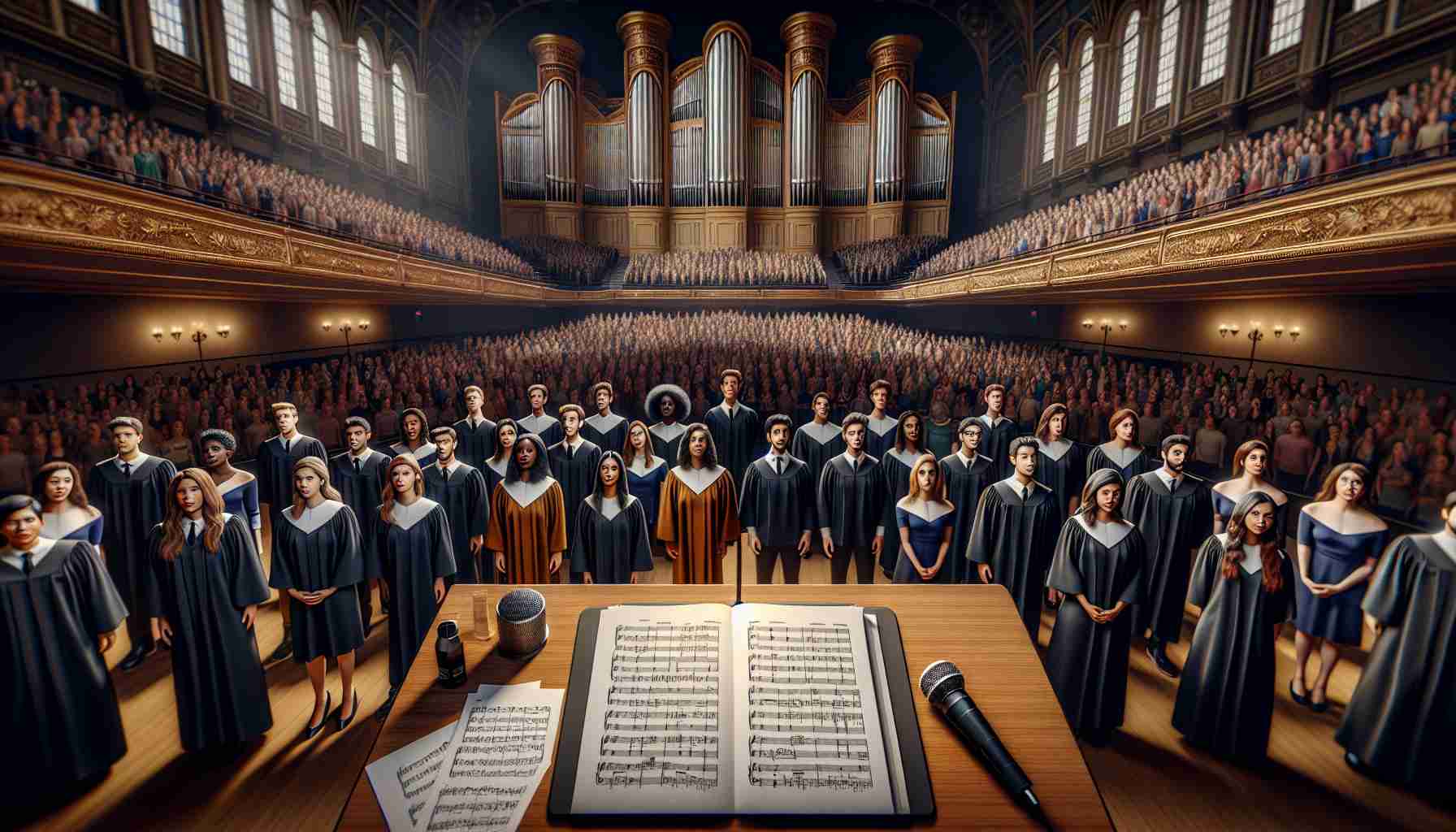UNL Choir Takes Center Stage at Presidential Inauguration
In a remarkable display of talent and representation, students from the Glenn Korff School of Music at the University of Nebraska-Lincoln (UNL) have arrived in Washington D.C. for a significant event—performing at President-elect Donald Trump’s inauguration. Nebraska U.S. Senator Deb Fischer highlighted the honor of these students, indicating that their participation is a proud reflection of Nebraska’s spirit on a national platform.
The highly anticipated performance on the day of the inauguration will see about 120 singers, including additional choirs beyond the original University Singers, led by Peter Eklund. Eklund, the director, expressed excitement at the overwhelming response from students eager to showcase their skills, noting a swift registration process that surpassed expectations and created a waitlist.
However, the event has sparked complex feelings among some participants. A few choir members chose to abstain from this prestigious opportunity due to personal beliefs related to the incoming administration. One junior music education major articulated his decision, stating a refusal to perform in support of an administration he does not believe in, although he respects the enthusiasm of those who opted to participate.
While political sentiments linger, Eklund emphasizes the significance of this performance for his students, seeing it as a valuable experience to shine on a national stage.
Cultural Reflections and Societal Implications of Musical Involvement in Political Events
The participation of the UNL Choir in a presidential inauguration transcends mere entertainment; it encapsulates a broader societal dialogue about the role of art in political contexts. Organizations and artistic communities often find themselves at the intersection of culture and politics, navigating the complicated landscape of individual beliefs versus collective opportunities. Such occasions not only elevate local talent but also serve as a reflection of national identity and unity—however paradoxical that may be.
By performing at a high-profile event, the choir members contribute to a narrative that remains relevant regardless of political affiliations. This moment can either bolster national pride or amplify discord, depending on public reception and the political landscape. The differing reactions among choir members demonstrate the increasing polarization in modern American society, accentuating how cultural expressions can invoke both solidarity and dissent.
Furthermore, as the global economy pivots towards valuing diverse narratives—especially in a post-pandemic context—artists’ roles as communicators of emotion and perspective are critical. Music serves as a universal language that can bridge divides, possibly inspiring new sociopolitical movements or dialogues. Looking ahead, we may see a growing trend in which cultural institutions and artists engage more directly with contemporary issues, using their platforms not just to entertain, but to provoke thought and foster a more inclusive dialogue about our shared values and differing opinions.
A Harmonious Debut: UNL Choir Shines at Presidential Inauguration
UNL Choir Takes Center Stage at Presidential Inauguration
The Glenn Korff School of Music from the University of Nebraska-Lincoln (UNL) made headlines recently as about 120 talented singers performed at President-elect Donald Trump’s inauguration. This significant event not only showcased the choir’s musical prowess but also highlighted the deep-rooted connections between education, culture, and national pride.
Overview of the Performance
Led by the enthusiastic director Peter Eklund, the choir featured additional groups alongside the original University Singers, ensuring a rich and diverse sound. Eklund expressed profound excitement about the overwhelming response from students, which resulted in a swift registration process that filled spots quickly, demonstrating a robust interest in participating in this prestigious event.
Pros and Cons of Participation
Pros:
– National Representation: Performing at such a high-profile event provided students with a unique opportunity to represent Nebraska on a grand scale.
– Musical Experience: Participants gained invaluable experience singing in front of a national audience, enhancing their musical careers.
– Camaraderie: Being part of a large group undertaking a significant task fostered intragroup bonds and teamwork.
Cons:
– Political Sentiments: Several choir members expressed mixed feelings about participating, citing personal beliefs regarding the administration.
– Divided Opinions: The decision to perform or abstain led to discussions within the choir about the intersection of art and politics, showcasing the complexities of public expressions amidst differing views.
Insights and Trends
The UNL choir’s performance reflects a larger trend in arts education, where students are increasingly engaged in national dialogues through their art. The commitment of young performers in expressing cultural sentiments can carry both personal and collective significance.
Use Cases in Education and Performance
Beyond just a performance, such events serve as critical learning experiences for music education students. Involving them in high-stakes environments fosters resilience and adaptability, key traits necessary for a successful career in the performing arts. Additionally, the exposure aids in networking opportunities, connecting them with professionals in the industry.
Limitations and Considerations
One critical consideration in participating in politically charged events is the potential backlash or the need for self-censorship among performers. Students might feel pressure to conform to group sentiments rather than express personal convictions, leading to internal conflicts about their roles as artists and citizens.
Conclusion
The UNL Choir’s participation in the Presidential Inauguration stands as a testament to the power of music in bridging divides and showcasing talent. Despite the political context, the experience underscores the value of arts education and the profound impact that young artists can have on society.
For more insights into how music education influences social and political engagement, visit University of Nebraska-Lincoln.
